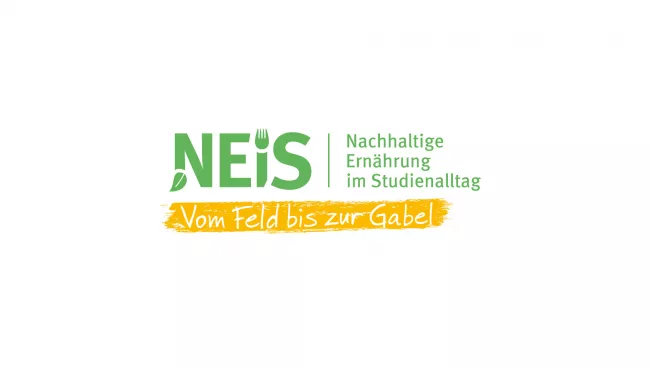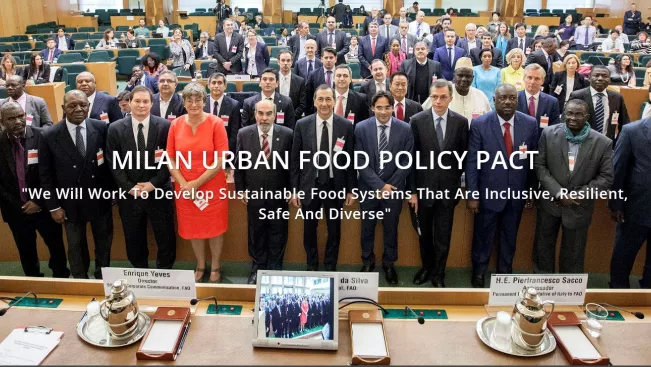Internationales Zentrum für Nachhaltige Entwicklung (IZNE)

Dr. Darya Hirsch
Ehemalige wissenschaftliche Beschäftigte an der Hochschule Bonn-Rhein-Sieg
Gliederung
Internationales Zentrum für Nachhaltige Entwicklung (IZNE)
Standort
Sankt Augustin
Adresse
Grantham-Alle 20
53757, Sankt Augustin
Profil
Nach ihrem Ausscheiden wechselte Dr. Darya Hirsch zur Stadt Bonn.
- Forschungsbereich: Nachhaltiges Wirtschaften, Bioökonomie, Nachhaltige Lebensmittel & Ernährungssicherung
- Doktor der Agrarwissenschaften (Dr. Agr.)
- Magister der Agrarwissenschaften (M.Agr.)
Projekte
- Vernetztes Rainland
- NEIS - Nachhaltige Ernährung im Studienalltag
- Nachhaltigkeitsbewertung partizipativer Produktionskonzepte und Entwicklung eines qualitativen Bewertungs-Tools auf der Basis von Zufriedenheit
- PROCINUT
- Untersuchung zu einem nachhaltigen und resilienten urbanen Ernährungssystem in der Stadt Köln
- Food-Protects Knowledge Transfer
- CSR-Kommunikation auf dem Prüfstand
- Das Regionale Forum Verantwortungsvolles Wirtschaften im Bereich Nachhaltige Lebensmittel
Forschungsprojekte
NEIS ist ein Projekt der Verbraucherzentrale Nordrhein-Westfalen, welches in Kooperation mit Hochschulen an drei Standorten in NRW durchgeführt wird. Es wird gefördert vom Ministerium für Umwelt, Landwirtschaft, Natur- und Verbraucherschutz des Landes Nordrhein-Westfalen.
Projektleitung an der H-BRS
Prof. Dr. Iris GroßNachhaltig wirtschaften, dies zu messen und darüber zu kommunizieren gewinnt an Bedeutung - unabhängig von der Größe eines Unternehmens oder Betriebs. Dabei sind unternehmerische/betriebliche und gesellschaftliche Nachhaltigkeit gleichermaßen wichtig. In einem landwirtschaftlichen Betrieb sind Planungssicherheit und Entwicklungsmöglichkeiten maßgebliche Kenngrößen, wohingegen für die Konsumenten und andere Anspruchsgruppen, Ökologie und Soziales eine besondere Bedeutung haben.
Projektleitung an der H-BRS
Prof. Dr. Wiltrud TerlauMit der Unterzeichnung des Milan Urban Food Policy Pact (MUFPP) erkennt die Kommunalverwaltung der Stadt Köln, dass eine stärker aktiv ausgerichtete Ernährungspolitik notwendig ist. Ein solches Umdenken in Bezug auf das aktuelle globale Ernährungssystem scheint zeitgemäß und innovativ. Auf globaler Ebene zeigen sich ähnliche Beispiele, die schon erste Fortschritte erkennen lassen. Weltweit haben 133 Städte den Milan Urban Food Policy Pact unterzeichnet; nach der Unterzeichnung sind in einigen dieser Städte Ernährungsräte oder ähnliche Multi-Stakeholder-Plattformen gegründet worden.
Projektleitung an der H-BRS
Prof. Dr. Wiltrud TerlauPublikationen
Peer-Reviewed Journals
Pulatov, A., D. Zavgorodnyaya. 1998. Economic analysis of agricultural sustainable development in Uzbekistan, TIIAME, Tashkent, Uzbekistan
Pulatov, A., D. Zavgorodnyaya (Zavgorodskaya). 1998. Sustainable Ecological Development of Agriculture in Uzbekistan, BASIS CRSP Research in Eastern Europe and Eurasia, Land Tenure Center, University of Wisconsin-Madison, USA
Zavgorodnyaya, D. 2007. Contribution of international donors to the sustainable complex water resource management in Uzbekistan. Hydrologie und Wasserbewirtschaftung, 5: 240-242.
Zavgorodnyaya, D. 2005. Phenomenon of WUA. Uzbek Agriculture, 5:25-26 (in Russian), http://www.khorezm.uni-bonn.de/downloads/download_russian_articles/Dary…
Zavgorodnyaya, D. 2006. Basin principle of water management in Uzbekistan: Chance for optimal water use? Case from Amudarya River Basin Agriculture in Uzbekistan, 11:32 (in Russian)
Giordano, R., S. Liersch, M. Vurro, D. Hirsch. 2010. Integrating local and technical knowledge to support soil salinity monitoring in the Amudarya river basin. Journal for Environmental Management, 91: 1718-1729
Hirsch, D., G. Abrami, R. Giordano, S. Liersch, N. Matin, M. Schlüter. 2010. Participatory research for adaptive water management in a transition country – a case study from Uzbekistan. Ecology and Society 15(3): 23: 1-33 (online)
Schlüter, M, D. Hirsch, C. Pahl-Wostl. 2010. Coping with change: responses of the Uzbek water management regime to socio-economic transition and global change. Environmental Science and Policy, 13, 620-636
Terlau, W, D. Hirsch. 2015. Sustainable Consumption and the Attitude-Behaviour-Gap Phenomenon - Causes and Measurements towards a Sustainable Development. International Journal of Food System Dynamics (submitted for a peer-review).
Articles in Proceedings/Books
Zavgorodnyaya, D. 2004. The principles of combined use and management of natural resources: theoretical basis and their appropriateness under the conditions of Republic of Uzbekistan, SANIIRI. Collected theses of conference reports: The problems and ways of forming the economic links in agriculture and water management in conditions of market reforms development. 20-21 December, 2004. Tashkent, Uzbekistan. 29-30.
Zavgorodnyaya, D. 2005. Farmers’ adaptation to the water resource use for irrigation under reforms of land and water sector in Uzbekistan. Bulletin of Karakalpak department, Academy of Science, Uzbekistan, 3:57-61 (in Russian) http://www.khorezm.uni-bonn.de/downloads/download_russian_articles/Dary…
Hirsch, D. 2008. Problems and Perspectives of Water Users Associations in Uzbekistan, in: Wehrheim, P., Schoeller-Schletter, A., and Martius, C. Continuity and Change: Land and Water Use Reforms in Rural Uzbekistan. Socio-economic and Legal Analyses for the Region Khorezm. Halle/Saale: IAMO: 131-143.
Hirsch, D., R. Koshekov. 2007. Water resources management on the Basin Management Boards of Irrigation Systems (BUIS) level during the years of various water supplies. Proceedings of the International Conference on Adaptive & Integrated Water Management - Coping with complexity and uncertainty (CAIWA), 12-16th November, 2007, Basel, Switzerland
Schlüter, M., D. Hirsch, U. Abdullaev, E. Herrfahrdt-Pähle, R. Giordano , M. Khamirzaeva, G. Khasankhanova, N. Kranz, S. Liersch, N. Matin , A. Salokhiddinov, A. Savitsky, Ch. Siderius, R.Toryannikova. 2010. The Amu Darya Case Study, in: J. Mysiak et al. (Hrsg.): The adaptive water resource management handbook, Earthscan, London: 143-155
Hirsch, D. 2011. Drivers of Land Use Changes in the Amudarya River Basin, in: J. Bogardi, J Leentvaar, and H.-P. Nachtnebel (Hrsg.): River Basins and Change, GWSP, UNESCO-IHE, S. 41-50 (online)
Veldwish, G., P. Mollinga, D. Hirsch, R. Yalcin. 2012. Politics of Agricultural Water Management in Khorezm, Uzbekistan, in C. Martius, Rudenko, I., Lamers, J.P.A., Vlek, P.L.G. (Hrsg.): Cotton, Water, Salts and Soums. Economic and Ecological Restructuring in Khorezm, Uzbekistan, Springer, p. 127-140.
Hirsch, D. 2013. Institutional Dynamics of Khorezmian Water Management on the Farmer Level in Uzbekistan: From Ancient Practices to the Present Situation. V. I. Grover, G. Krantzberg (Hrsg.): Water Co-Management, CRC Press, p. 337–351
Terlau, W., D. Hirsch, 2014. Responsible Business and Sustainable Food – A Regional and International Network Model with Linkage between Science and Business, PFSD Proceedings in System Dynamics and Innovation in Food Networks 2014, 17th-21st of February, 2014: 487-490.
Reports &These
Zavgorodnyaya, D. 1998. Wirtschaftlichkeit des Produktionsmitteleinsatzes: Fallbeispiel am landwirtschaftlichen Bauunternehmen No 5 in Taschkent. Diploma thesis. Tashkent Institute for Irrigation and Agricultural Mechanization Engineers (TIIAME). pp. 30 [in Russian]
Zavgorodnyaya, D. 2002. Lokale Organisation des Wassermanagements in der Region Khorezm, Usbekistan. Master thesis. Rheinische Friedrich-Wilhelms-University. pp. 88 [in German]
Zavgorodnyaya, D. 2007. Water Users Associations in Uzbekistan: Theory and practice, PhD thesis. Rheinische Friedrich-Wilhelms-University. pp. 206 [in English]
Links
Weiterführende Links


